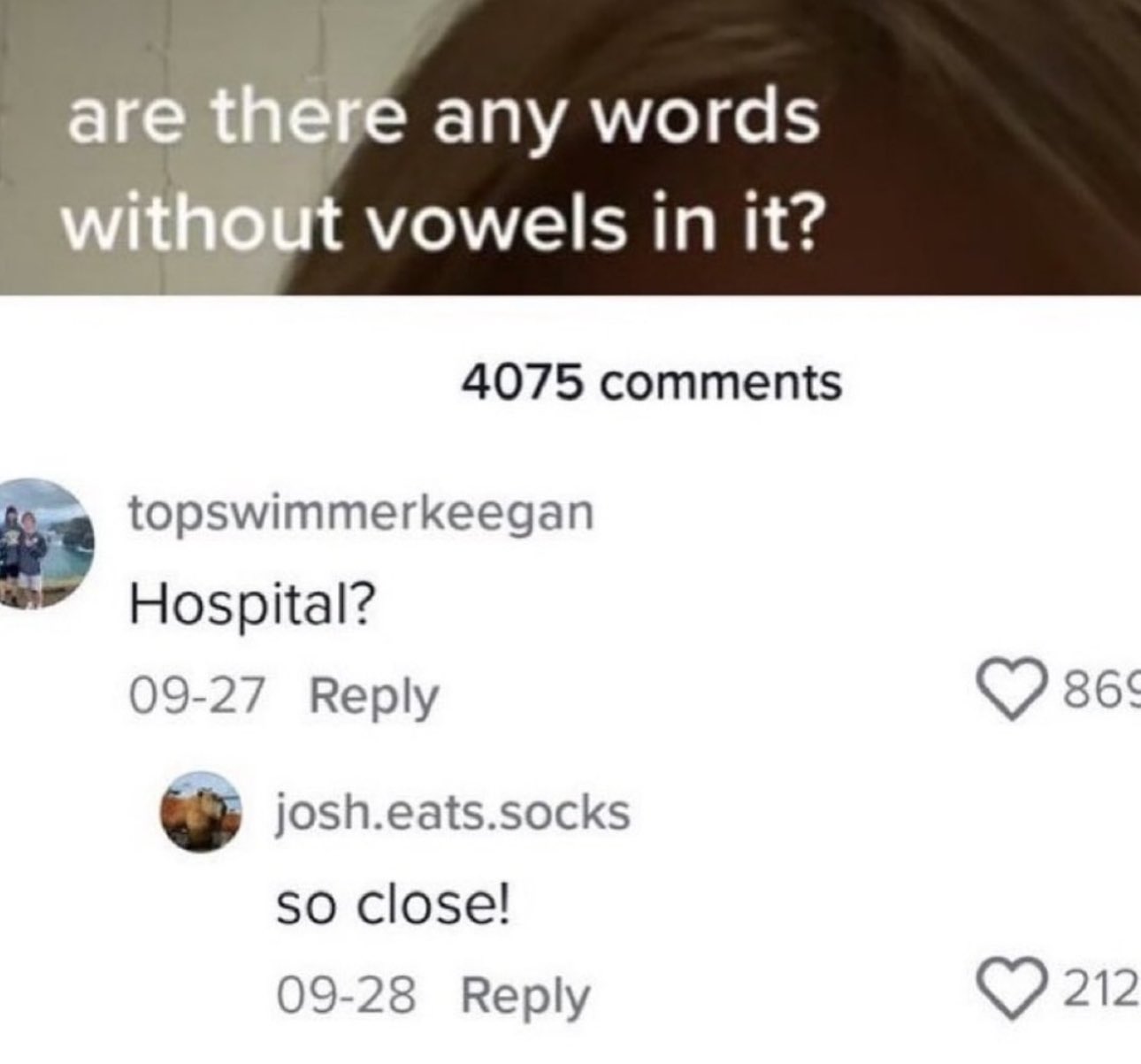this post was submitted on 31 Dec 2023
239 points (94.1% liked)
Funny: Home of the Haha
6252 readers
247 users here now
Welcome to /c/funny, a place for all your humorous and amusing content.
Looking for mods! Send an application to Stamets!
Our Rules:
-
Keep it civil. We're all people here. Be respectful to one another.
-
No sexism, racism, homophobia, transphobia or any other flavor of bigotry. I should not need to explain this one.
-
Try not to repost anything posted within the past month. Beyond that, go for it. Not everyone is on every site all the time.
Other Communities:
-
/c/[email protected] - Star Trek chat, memes and shitposts
-
/c/[email protected] - General memes
founded 2 years ago
MODERATORS
you are viewing a single comment's thread
view the rest of the comments
view the rest of the comments

Those aren’t really English “words” though. There’s some old welsh in there which actually used W as a double U. And then some onomatopoeia, which while defined in some dictionaries, aren’t really words anymore than abbreviations like CIA or FCC are words.
According to the Cambridge English dictionary a word is simply "a single unit of language that has meaning and can be spoken or written", so acronyms and onomatopoeia are words as much as any other apparently. Maybe they would consider an acronym multiple units of language bound together though so not itself a word.
"nth" is a "common" word though
Dry, crypt, dryly. It's crypty a word...
Y is a vowel.
Ah, when i went to school it was only A.e.i.o.u that were the vowels.
Y is only sometimes a vowel: when it forms a vowel sound in a word.
In the case of "dry, crypt and dryly", we could perhaps spell them "drie, cript and drielee" if we wish to see where those more familiar vowel sounds exist in those words.
Yeah, I've been reading up on it since the previous commentator drew my attention to it. Odd the bits of eduction you miss in life.
Fly, try and ply